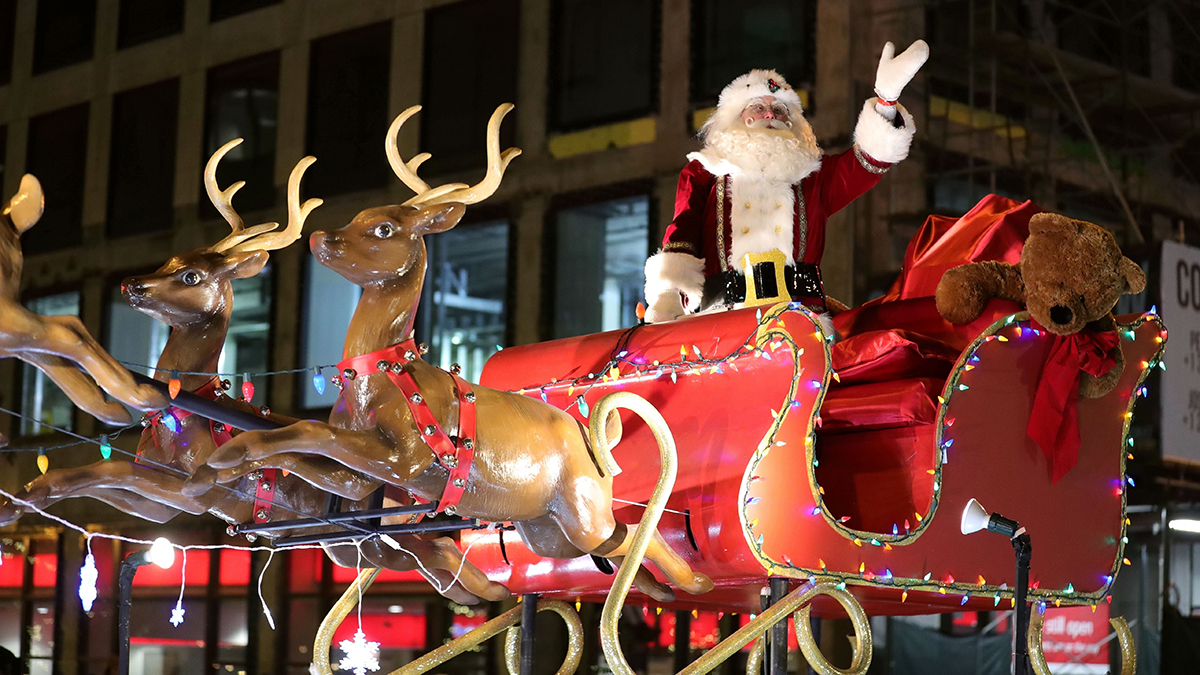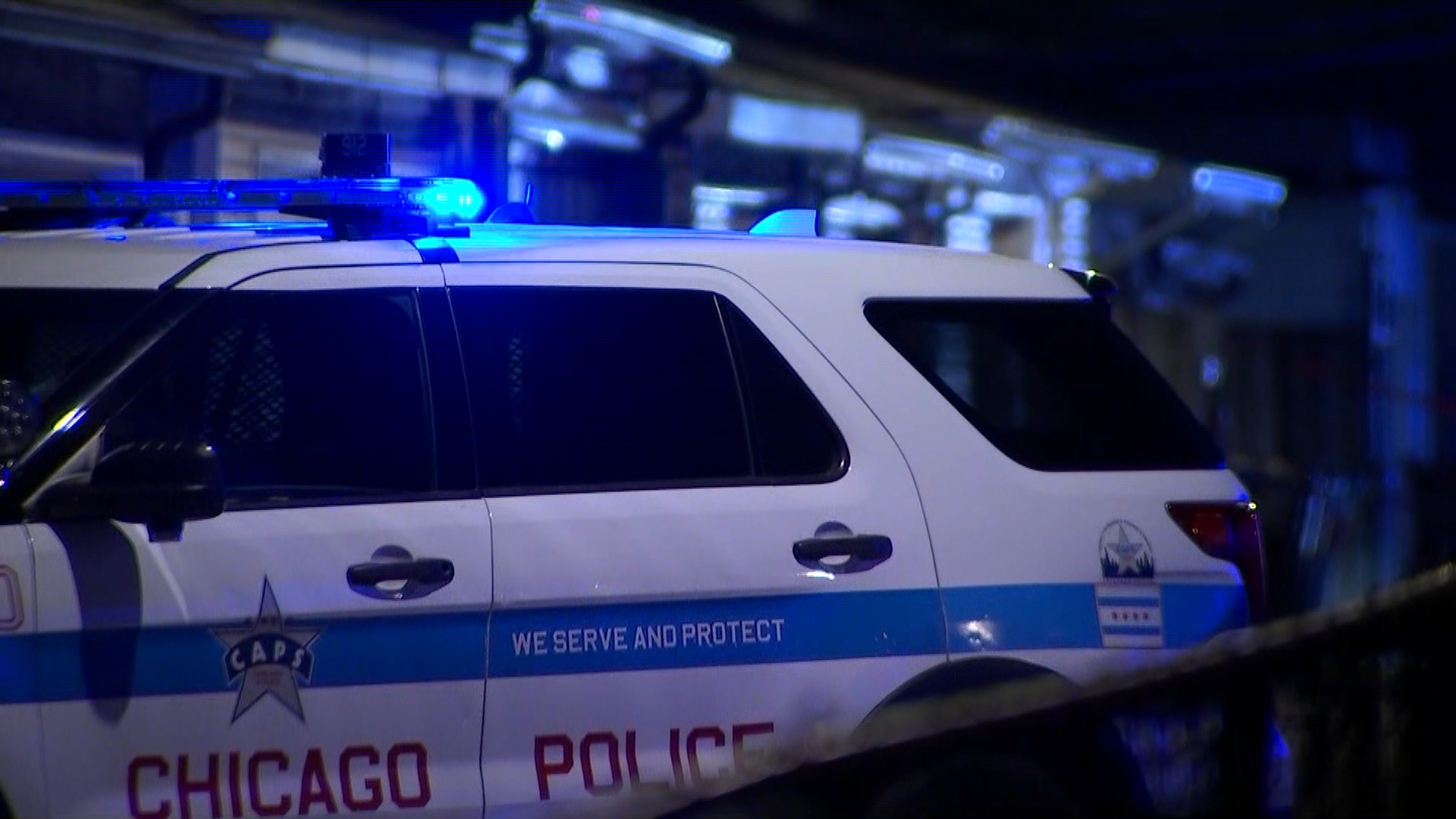After two weeks, he couldn't stand by any longer watching news coverage on television. So, he booked a flight to Poland. Following more than 36 hours, he was finally reunited with his family, who'd been seeking shelter in a church basement in Kyiv.
"We spent 10 days in shelter," said Olga Tymoshonko, Kovalenko's sister. "My husband stayed to fight."
Kovalenko, his sister, mother and niece are now together in Lithuania, hopeful to get an appointment at an embassy, after an 18 hour train ride and another 18 hours by car.
"I can’t get through to anybody. I can’t get any information. [It's] frustrating. I don’t know what to do honestly," Kovalenko said.
He tried to apply for visas for his family online. Kovalenko even went to embassies in both Warsaw and Vilnius to get answers but was turned away.
"The issue right now is that Ukrainians, unlike a lot of Europeans, require a visa to enter the United States for any purpose," said Theresa Cardinal Brown, the managing director of Immigration Cross Border Policy at the Bipartisan Policy Center in Washington D.C.
Local
"Most temporary visas, including visitor visas, require you to show that you have a home you don’t intend to abandon and go back to."
Cardinal Brown has spent her 30-year career in immigration policy, including several years with the U.S. Department of Homeland Security.
Feeling out of the loop? We'll catch you up on the Chicago news you need to know. Sign up for the weekly Chicago Catch-Up newsletter.
Due to COVID-related staffing shortages, there are extensive backlogs of visa applications.
"It can take weeks to months to even get an appointment to apply. So, there are a lot of challenges for Ukrainians who have managed to get out of Ukraine, in Europe, and are looking to come to the U.S.," she said.
Kovalenko is a U.S. citizen and can apply for green card sponsorship for his immediate family. However, according to Cardinal Brown, that process can take up to two years.
"The refugee process, should they qualify as a refugee, also takes a year to a year and a half and has been disrupted in part because the U.S. was doing refugee processing out of Kyiv. That’s obviously not happening anymore," Cardinal Brown said.
"Absent the Biden Administration making a path, there’s no right now expedited way for Ukrainians get to the U.S.," she said.
So far, the Biden administration has authorized millions of dollars in humanitarian financial aid, provided temporary protected status to thousands of Ukrainians already in the U.S., and temporarily halted deportations to Ukraine.
Despite President Biden tweeting, "We will welcome Ukrainian refugees with open arms," Cardinal Brown says that hasn't happened.
"As of right now, the administration has not taken any specific steps to help Ukrainians ," Cardinal Brown said.
"They have not opened up any direct pathways for Ukrainians to come to the U.S., even Ukrainians who have family [here]," she said.
Kovalenko and his family will stay in Lithuania for the time being. They may travel next to Frankfurt, Germany, where the processing hub for Ukrainian immigrant visa applications is located.
Although their future is uncertain, they are grateful to be together.
"I’m blessed, happy they [are] here next to me," Kovalenko said.
Humanitarian parole is another option within the immigration system.
A U.S. State Department spokesperson said anyone can file an application, which allows someone with a compelling emergency to temporarily enter the U.S., on a case-by-case basis.
The spokesperson released the following statement to NBC 5:
"We are working to ensure our embassies and consulates in the region have sufficient staff and resources and are prioritizing consular support to U.S. citizens and their immediate family members. We have designated the U.S. Consulate General in Frankfurt as the processing post for all Ukrainian immigrant visa applications, with the exception of adoption cases, which will be handled at U.S. Embassy Warsaw. Ukraine passport holders can enter Schengen countries without a visa. U.S. citizens and their immediate family members should relocate to a safe place and then follow detailed guidance on visa processing on our website and the website of the nearest U.S. embassy or consulate.
U.S. citizens who are overseas with immediate family members and have not yet filed an immigrant visa petition with USCIS may request to file a petition at the nearest embassy or consulate that processes immigrant visas. This applies only to U.S. citizens physically present in that consular district filing petitions for their spouses, unmarried children under 21, and parents who have fled Ukraine. Individuals with approved, current petitions who have not been scheduled for an immigrant visa interview may be able to request expedited processing through the National Visa Center.
Nonimmigrant visas are for temporary stays in the United States. Nonimmigrant visa applications may be processed wherever a Ukrainian applicant is physically located and able to schedule an appointment. Further information for visa applicants from Ukraine is available here. An application for a nonimmigrant visa does not replace or provide access to refugee or relocation assistance. Non-U.S. citizens who are seeking assistance as refugees should contact the nearest UN High Commissioner for Refugees (UNHCR) office.
We cannot speculate on whether someone may or may not be eligible for a visa. Whenever an individual applies for a U.S. visa, a consular officer reviews the facts of the case and determines whether the applicant is eligible for that visa based on U.S. law. Individuals applying for non-immigrant visas must be able to demonstrate intent to leave the United States after a defined period in order to return to a residence abroad.”
Regular updates on estimated nonimmigrant visa (NIV) wait times are available on travel.state.gov. See each U.S. embassy or consulate’s website for information regarding operating status and which services it currently offers."



